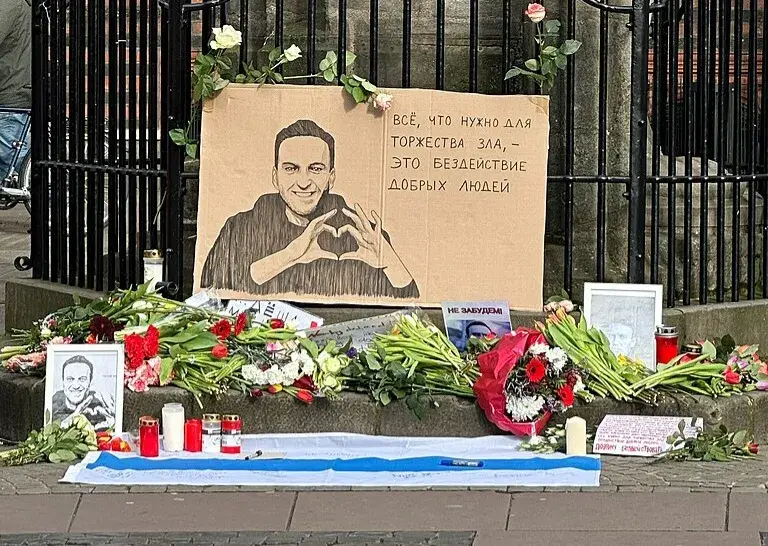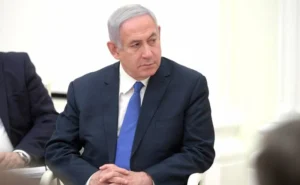Law enforcement and plainclothes officers have been trying since Friday to remove all memorials created by Navalny’s supporters.

More than 400 people have been detained in different Russian cities during protest actions over the death in prison of the opposition leader, Alexei Navalny, as reported this Saturday by OVD-Info, an organization that protects the rights of detained dissidents.
More than half of the arrests occurred in St. Petersburg, the hometown of Russian President Vladimir Putin. The remaining arrests occurred in Moscow, Nizhny Novgorod, Krasnodar and other cities in the European part of Russia and Siberia, OVD-Info stated on its website.
Law enforcement and plainclothes officers have been trying since Friday to remove all memorials created by Navalny’s supporters, both in monuments to the victims of political repression and in improvised places.
In addition, the Police collected the personal data of all participants in those acts, including the reporters who came to cover them. This is what happened, according to local Telegram channels, in front of the Kremlin on the bridge where the opposition leader Boris Nemtsov was also murdered in 2015.
Thousands of Russians in exile took to the streets to protest what they consider a murder commissioned by the Kremlin and called for more actions in European, American and Latin American cities for Saturday.
Navalny, 47, died suddenly on Friday in the Arctic prison where he had been held since last December, according to the Russian prison services.
According to the local press, numerous people have paid tribute to the opposition leader by placing flowers since the day before. or placing candles in designated places in their cities.
The opposition, the Russian independent press, and the Western foreign ministries in unison accused Putin of ordering the assassination of Navalny, the Kremlin’s number one enemy for 15 years.
The presidential spokesman, Dmitri Peskov , considered “unacceptable” the accusations made by the West before the results of the autopsy are known.
On Friday night, groups of people across Russia laid flowers at makeshift memorials at monuments to political dissidents and arrests were made, according to reports on social media.
Navalny, who was serving a sentence of almost 30 years in prison, was transferred in December to an Arctic prison after announcing a campaign against Putin’s re-election in the March presidential elections.
In response to calls to demonstrate that circulated on the Internet, the Moscow prosecutor’s office warned on Friday that “organizing or holding unauthorized rallies, convening and participating in them is an administrative offense.”
Protests are illegal in Russia, where harsh laws apply to punish dissent, including prison sentences for criticizing power. The authorities have repressed rallies in support of Navalny with particular severity.
Navalny had survived poisoning in 2020. He had been detained since 2021 and was convicted of “extremism”.
This lawyer, who achieved notoriety as an anti-corruption activist, was the most prominent figure of an opposition that is reduced to its minimum expression due to the repression that intensified after the start of the Russian offensive in Ukraine, in February 2022.
His death was announced one month before the elections in Russia, which are expected to consolidate the president, Vladimir Putin, in power.







